Relocalization may be the most important strategy for minimizing climate change. According to Bill McKibben, “working as communities is the most important thing that we can be doing right now.” In this wide-ranging conversation about the sustainability of our civilization, McKibben shares his thinking about much more than climate change, including the fact that having “more” is not necessarily the key to our happiness. For a long time more and better were pretty much in the same direction….But sometime, and…
Tag Archives consumption
Rex Weyler has lived the life dreamed of by those who want to make a difference. As a young man he joined early Greenpeace expeditions to document and stop commercial whaling. He went on to co-found Greenpeace International, and as a journalist has covered the subject of ecology extensively. The human machine is just steamrolling…toward disaster.” Weyler has lived a rich life and has a keen understanding of the source of joy, but there is sadness in his voice when…
Lorna Salzman has the chops to be an outspoken critic of many in the modern environmental movement. She played a key role in the early days of Friends of the Earth alongside David Brower (the first executive director of the Sierra Club), beginning a 40-year career as an environmental activist, writer, lecturer and organizer. A contender for the Green Party presidential nomination in 2004, Salzman is an iconoclast in every sense of the word. In this 2010 interview we hear…
“I don’t think there’s a lot of excuses, frankly, for not doing the right thing.” Anishinaabe orator, author, economist and activist Winona LaDuke doesn’t mince words in her quest to light a path for us to “hang around another thousand years.” Winona observes that we are “doing things only addicts would do,” including sedating ourselves with a lot of information and television. “Your ecosystem seems to be your mall,” LaDuke tell us. Are you enjoying tapping the brightest minds on…
“Gross Domestic Product has now become a fetish,” according to economist Raj Patel. Many undesirable things end up adding to GDP: wars, disease, and environmental destruction, for example. Meanwhile GDP fails to measure many desirable indicators of community health. It has led us to live in an ecologically and socially unsustainable fashion. Are you enjoying tapping the brightest minds on the planet? Want to continue to have this kind of access? Join the community of Conversation Earth fans pitching in…
How and why did our society come to value economic growth so highly that we pursue it at the risk of our long-term survival? For some time scientists have warned that human civilization is living beyond the ecological means of our planet. Yet our commitment to economic growth is unwavering. Australian writer Kerryn Higgs chronicled this triumph of denial over science in her book, Collision Course: Endless Growth on a Finite Planet. This book is impressively researched. She shares her…
We need to change the way we think if we want to extend the shelf-life of our civilization, according to Frances Moore Lappé, author of EcoMind: Changing the Way We Think and Diet for a Small Planet. In this 2017 conversation, Lappé explains some of the “thought traps” to avoid in order to effectively inspire transition from what she calls our “economy of destruction.” She also explains how democracy is much more than just a form of government; it is…
We’re not living on Earth as if we want to stay, observes Mike Nickerson. In our last episode, Mike Nickerson shared his vision for, and the joy of, making the cultural shift necessary for a sustainable human civilization. In this continuation of the conversation, we explore some of the forces keeping our system stuck in an unsustainable mode. Nickerson leads the Sustainability Project/7th Generation Initiative in Canada, a non-profit organization that collects, studies, develops and teaches ideas, information, technologies and…
“We could be having so much fun that there just isn't time to consume resources on a quantity, or produce waste on a quantity that would be problematic for the planet,” according Mike Nickerson. He shares his ideas about how enjoyable it could be to make the cultural shift necessary for human civilization to be sustainable. Mike Nickerson has spent his career advancing sustainability. In the 1970s he founded and co-directed the Institute for the Study of Cultural Evolution. Today…
How can policymakers be persuaded to abandon the most widespread public policy goal on Earth? In our last episode, Brian Czech explained that economic growth cannot be sustained perpetually on a finite planet. This episode continues that conversation with the conservation biologist and economics expert. Here, he explains why pro-growth economists proliferate, and offers his prescription for making the shift to a steady state economy. Brian Czech is founder and president of the Center for the Advancement of the Steady…

